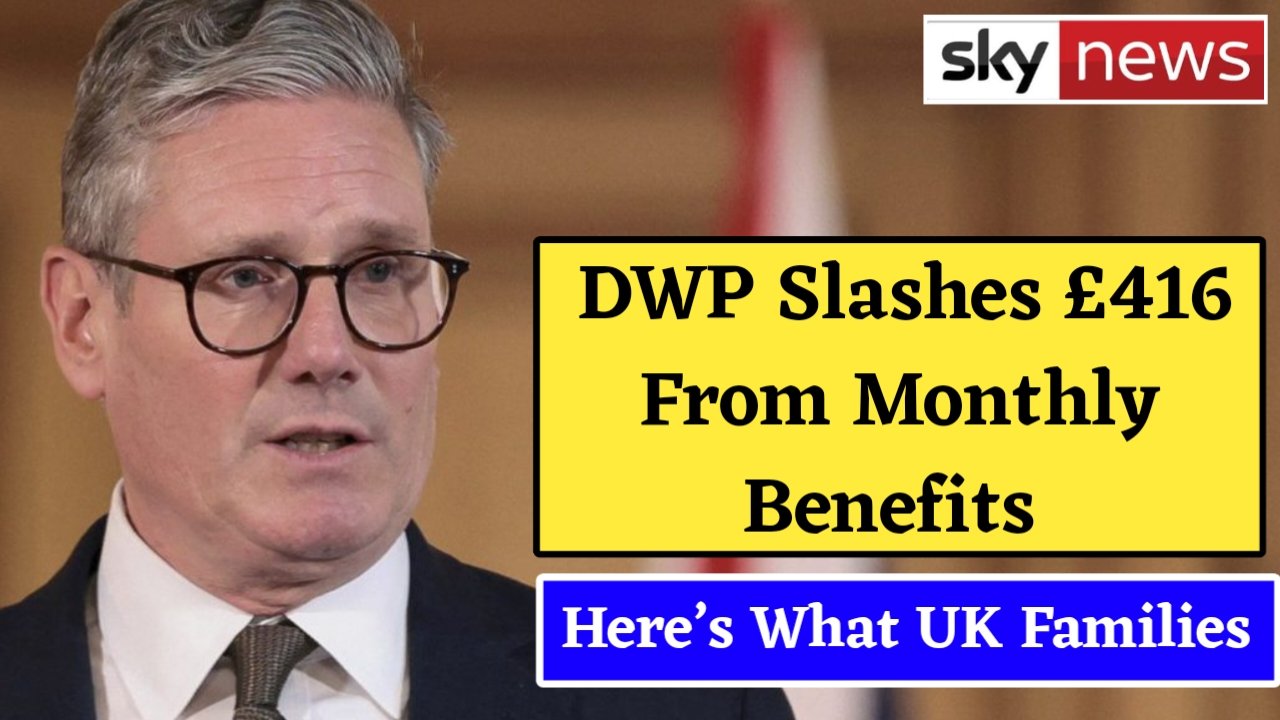The Department for Work and Pensions (DWP) has issued a new update that could significantly impact thousands of households across the United Kingdom. According to the latest announcement, some families may see a reduction of up to £416 per month in their benefits. This news has left many struggling families worried about how they will manage their rising cost of living, especially at a time when inflation, high energy bills, and increasing rent are already creating financial pressure. If you or your loved ones are dependent on DWP support, it’s crucial to understand what this change means and how you can prepare for it.
Why Has DWP Reduced Monthly Benefits?
The DWP’s decision to cut up to £416 from certain households is largely linked to new benefit assessments and eligibility reviews. The government has been tightening rules to ensure that only those who truly qualify continue receiving full payments. For some families, this cut could be the result of changes in income, savings levels, or employment status, while for others it could be linked to stricter checks on Universal Credit or disability-related benefits.

The government argues that these changes are meant to “balance the welfare system,” but critics believe they will push vulnerable families deeper into hardship. Understanding why these changes are happening can help you plan ahead and avoid sudden financial shocks.
Who Will Be Most Affected?
Not every household will see a reduction, but families that rely heavily on Universal Credit, Housing Benefit, or disability support are among those most at risk. For example:
- Households where a member has recently started part-time or full-time work.
- Families with savings above the threshold set by the government.
- Claimants undergoing reassessments for disability benefits such as PIP (Personal Independence Payment).
- Those who previously received additional support due to special circumstances that no longer apply.
If you fall into any of these categories, it is important to carefully review your benefits letter from the DWP to check whether you are directly impacted.
What UK Families Should Do Now
While losing £416 a month can feel overwhelming, there are practical steps families can take to minimise the impact. The first step is to carefully check your DWP notice to confirm the reason for the reduction. Sometimes, it could be a clerical error or missing documentation that you can quickly fix.
Families are also encouraged to seek advice from Citizens Advice or local support centres. These organisations can help you challenge decisions, file appeals, or explore additional support schemes that you might not be aware of. For example, you may still qualify for Council Tax Reduction, Child Benefit, or energy support grants, which can help offset the loss.
Can Families Appeal the Reduction?
Yes, in many cases, families have the right to appeal if they believe their benefits have been unfairly reduced. The process involves requesting a Mandatory Reconsideration from the DWP, where your case will be reviewed again. If the decision remains unchanged, you can escalate it to an independent tribunal.
It’s essential to act quickly, as deadlines apply to appeals. Gathering evidence, medical records (for disability claims), or proof of income can significantly improve your chances of success. Many families have successfully overturned benefit cuts by going through this process.
How to Cope With the Financial Pressure
For families already struggling with high living costs, the sudden loss of £416 a month can create serious difficulties. However, there are several strategies that can help:
- Budget Review: Track every expense to identify areas where you can reduce non-essential spending.
- Extra Support Schemes: Apply for food bank vouchers, local welfare assistance funds, or heating grants offered by councils.
- Debt Advice: If the cut pushes you into debt, organisations like StepChange and National Debtline can provide free advice and structured repayment plans.
- Part-Time Work Options: Exploring part-time or remote work opportunities could help supplement your income without affecting certain benefits.
Final Thoughts
The DWP’s decision to slash £416 from monthly benefits has caused anxiety among thousands of UK households. For many, this reduction means making tough choices between paying rent, heating their homes, and feeding their families. But by understanding why the cuts are happening, knowing your rights to appeal, and exploring alternative sources of support, families can take steps to protect themselves from the worst impact.
If your household has been affected, don’t ignore the notice—act quickly, seek advice, and explore every option available. The sooner you respond, the better your chances of managing the situation without falling into financial hardship.